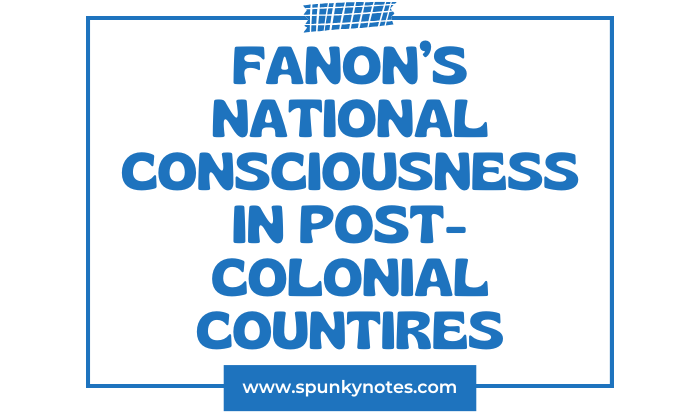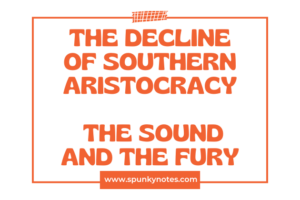
Q. Can Frantz Fanon’s ideas about national consciousness be applied to contemporary post-colonial countries? Provide examples.
Frantz Fanon’s National Consciousness in Post-Colonial Countries
In The Wretched of the Earth (1961), Frantz Fanon urged newly independent nations to build a strong national consciousness. He believed independence would be meaningless without unity and purpose among all citizens.
He warned that new leaders might continue colonial patterns under a different name. Today, many post-colonial nations still face leadership failures, economic struggles, cultural identity crises, and foreign influence.
Political Leadership and Fanon’s Warnings
Fanon argued that new post-colonial leaders often imitated their former colonizers. Instead of serving the people, they used power for personal gain. He described how independence could become “an empty shell” if leaders failed to improve people’s lives.
His warnings proved true in many countries. In South Africa, the African National Congress (ANC) led the fight against apartheid but later became part of an elite political class.
Leaders like Jacob Zuma and Cyril Ramaphosa have been criticized for corruption while ordinary citizens struggle with poverty. The ANC’s leadership failed to bring real change, resembling the privileged class Fanon warned about.
Algeria, a country whose anti-colonial fight Fanon supported, also fell into this trap. After gaining independence from France in 1962, the ruling FLN party became authoritarian.
Over time, military and business elites controlled the nation, blocking democratic reforms. In 2019, Algerians protested against their long-time president and corrupt leadership, demanding real change.
In Zimbabwe, Robert Mugabe started as a leader fighting for independence, but later, his government became corrupt. Many people suffered because of economic problems and poor leadership.
This movement reflected Fanon’s warning that political leaders must serve the people, not just replace foreign rulers with local elites.
Economic Challenges
Fanon argued that political freedom meant little without economic independence. He noted that many post-colonial nations remained dependent on exporting raw materials, just as they did under colonialism. This kept them impoverished while wealth flowed to foreign powers and local elites.
Nigeria, for example, gained independence in 1960 but remains heavily dependent on oil exports. The profits mainly benefit a small elite and foreign companies, while many Nigerians face poverty.
Despite gaining independence in 1957, Ghana still relies on gold and cocoa exports with little industrialization. This dependence on raw materials keeps these economies weak.
Fanon also warned that local elites would act as intermediaries for foreign powers, allowing neocolonialism to thrive.
In the 1980s and 1990s, institutions like the IMF imposed harsh economic policies on African and Latin American countries.
These policies forced nations to cut social spending and open markets to foreign corporations, worsening poverty. Many newly independent countries found themselves in debt, unable to escape colonial economic patterns.
Cultural Identity and National Consciousness
Fanon argued that colonialism tried to erase indigenous cultures, making people feel inferior. He believed post-colonial nations needed to reclaim their identity without copying their former rulers.
Tanzania followed this idea after independence in 1961. President Julius Nyerere promoted Swahili as a national language to unite the country. Tanzania has over 100 ethnic groups but has avoided major ethnic conflicts due to this shared identity.
However, Fanon also warned that weak national consciousness could lead to divisions. Nigeria faced a civil war just a few years after independence when one region tried to break away.
Rwanda, too, suffered from ethnic divisions worsened by colonial policies, leading to the 1994 genocide. These events show the dangers of failing to build a strong, inclusive national identity.
Despite these struggles, many post-colonial nations have revived their cultures. In India, interest in indigenous knowledge and traditions grew after British rule.
In the Caribbean, countries like Jamaica blended African and European influences to create unique cultural expressions, such as reggae music.
Resistance to Neocolonialism
Fanon believed that true independence required resisting foreign control through economics, politics, or culture. He warned that new leaders must not simply replace colonial rulers but must break free from external influence.
Some countries have followed this path. In Bolivia, former president Evo Morales nationalized gas and mineral industries to benefit the local population. In Egypt and India, leaders took control of key resources, such as the Suez Canal and food production, to reduce dependence on foreign powers.
Pan-Africanism, inspired by thinkers like Fanon, also encouraged African nations to work together. While complete unity was never achieved, organizations like the African Union continue efforts to strengthen cooperation.
Popular movements have also fought against neocolonialism. In 2019, Algerians protested against their corrupt government, demanding true democracy.
Student-led movements like “Rhodes Must Fall” in South Africa have challenged colonial influences in education. These movements reflect Fanon’s belief that liberation must be ongoing and must include economic and cultural freedom.
Fanon wrote that violence was sometimes necessary to achieve true freedom. He believed that colonial systems were built through violence, and sometimes they could only be destroyed in the same way.
In some countries, armed movements have tried to remove corrupt governments. In Mali and Burkina Faso, people have supported military coups because they believe civilian governments have failed.
However, military rule has also led to more problems. Fanon warned that the country will not be free if new leaders do not serve the people.
Conclusion
Frantz Fanon described the struggles post-colonial nations face after gaining independence. Many leaders became corrupt and focused on their own wealth instead of improving their countries.
Economic dependence on former colonial powers remains a significant problem, keeping many nations poor. Instead of building strong economies, many still export raw materials and import expensive goods.
Fanon warned that national identity should come from the people, not just the ruling class. Some leaders have used ethnic and religious divisions to maintain power, weakening national unity.
In many places, people have protested against corruption, demanding better governance.
Culture plays a key role in national consciousness. Some countries have revived traditional languages and customs, reconnecting with their history. Fanon believed true independence requires economic growth, fair leadership, and cultural pride.

